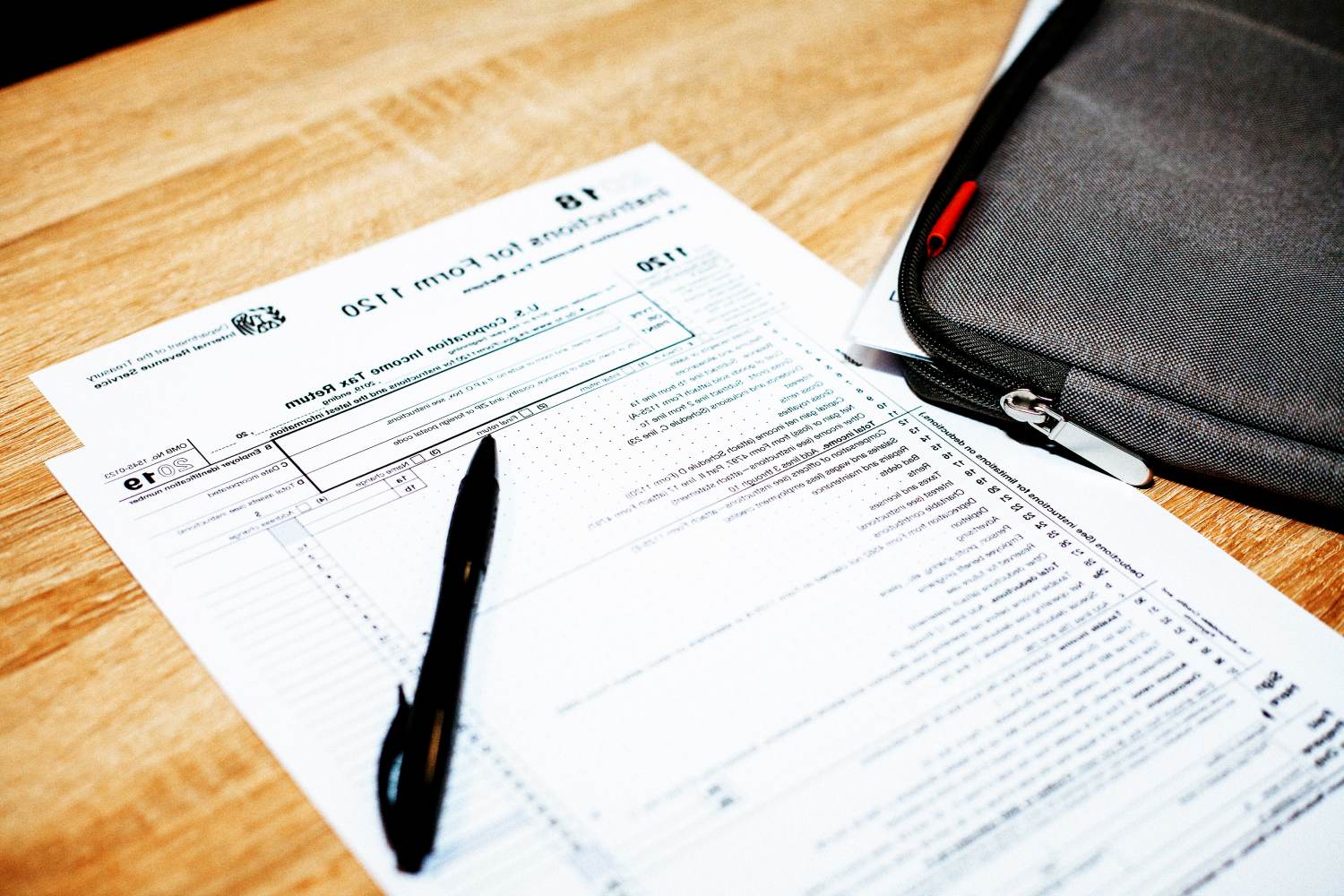
Business owners should take every tax deduction they can. You never want to pay a cent more to the government than is 100% necessary. In this guide, we’re going to explain key methods that you can begin using to reduce your tax burden today.
What Is a Tax Deduction?
A tax deduction is a legal method of reducing your tax burden by deducting certain expenses that you have throughout the year. For example, let’s assume that you have a dog boarding business.
For your normal operations, you need to purchase five new kennels to keep the dogs in when they’re boarded.
You also need to pay for:
- Construction to install the kennels
- Dog food
- Insurance
- Etc.

Since these are business-related expenses, you have the ability to write them off as a tax deduction. The deduction empowers you to reduce your taxable income so that you have a lower tax burden.
Tax Deduction Savings
Small business tax deductions can offer a lot of savings. A standard tax deduction is not a 1:1 reduction in your tax responsibility, but you can still save a significant amount of money in the process.
However, if you want to take advantage of every tax deduction that you can, it’s important to stay on top of deductions.
Staying On Top Of Your Deductions
You have all of these small business tax write offs that you can take, but you need to show proof of them. As an owner of an SMB, you already have a lot of different positions that you fill in your business, but now you need to stay on top of each tax deduction.
You can learn to manage and organize these deductions in a few ways:
- Recordkeeping: You need to be a master of keeping records. If you receive a receipt, you need to file it away. All of your receipts for business-related expenses should be copied and kept in a folder for the quarter or year, depending on how you do your taxes. In addition, you can use software.
- Software: Many apps and SaaS products are available that will allow you to keep track of your expenses. You'll find platforms that allow you to snap a picture of a receipt or invoice and automatically file the expense away.
- Tax or Bookkeeping Software: You may have tax or bookkeeping software that you use. Connecting these solutions to your bank account and tagging them as expenses may help you manage your tax deduction automatically.
If you find yourself overwhelmed with organizing each tax deduction, you should work with a professional. An expert such as a bookkeeper or accountant will help you track your expenses and maximize your tax deduction.
Note: It’s increasingly important to keep records of each and every tax deduction. Audits can and do happen every year. In fact, 1% of small businesses will be audited in the next year alone. You must show proof of the deductions that you claim. Receipts will need to be sent to the IRS.
Maximizing Tax Deductions for Your Small Business

What is maximize deductions?
It means doing everything that you can to maximize deductions and credits. You can do this in a few ways, including but not limited to:
Make 401(k) and HSA Contributions
Business tax deductions can be on your personal income tax, too. For example, if you run a single-member LLC, you may be a passthrough entity that will have all of the business’s income passed to you and be declared on your own taxes.
The same can occur with partnerships, where each partner receives their respective share of income from the business.
In these cases, you can take advantage of a retirement tax deduction: your 401(k) contributions. A 401(k) allows you to either defer taxes until you retire or to pay taxes now and let the money grow tax-free if you have a Roth account.
Roth accounts are not tax deductible, but they allow for tax-free growth.
However, if you do decide to have a traditional IRA, you can deduct your contributions, which are capped at $7,500 for people 50 or older and slightly lower if you’re under 50. In both of these cases, you can take a tax deduction.
There's also something called an HSA or Health Savings Account.
An HSA is a tax-advantaged account that allows you to do a few things:
- Set aside pretax money into a special account
- Use the fund in the account for medical costs
If the HSA is part of your health plan, the money in these accounts can continue to grow and be invested. You can deduct your contributions to the HSA and can use the funds to pay for any short-term or long-term medical expenses that you have.
An HSA’s limit per year is:
- $3,850 for self-coverage
- $7,750 for family
Leverage this tax deduction and set aside money for any medical expenses that you may have in life.
Postpone Your Income
Income postponement is one effective way to reduce your taxes. This is not a true “tax deduction,” but it is a way to shape your tax burden. For example, assume that you have $10,000 in invoices that you know will be paid within two weeks of delivering them.
You can opt to postpone sending these invoices until December 31st of the year so that you don’t receive the money before the tax season ends.
This tactic is ideal for businesses of all sizes and something that many major corporations do to avoid a large tax burden on a certain quarter. You need to spend time finding ways to postpone income, and this may even mean:
- Avoiding cashing checks
- Discussing this option with suppliers
If you postpone your income, you’ll reduce your current tax burden. Again, this is less of a tax deduction and more of a tax strategy, but it will save you money in the long term.
Why would you postpone income?
Most tax strategists agree that the best way to shape your tax burden is to plan for the future. You can use income postponement to your advantage if you’re close to reaching a new tax bracket.
When you can avoid hitting a new tax bracket, it can save you a lot of money.
This is something that you’ll want to sit down with a tax professional and discuss. Since every business is different, it may or may not make sense to postpone your income.
Pay for Your Business Expenses Early
Business expenses are always something that you’ll have. For example, let’s assume that you have an invoice for $10,000 from a supplier. You receive it in December and have a Net 60 term, allowing you to pay it in two months.
You can pay this expense early and deduct it from the current year’s taxes.
A few better examples of paying business expenses early include:
- Paying for a year of cleaning services upfront instead of every month
- Purchasing excess inventory that you would buy right after taxes anyway
- Pay for anything you can in advance
If you work with suppliers, they’ll be more than happy to receive a cash infusion upfront and will allow you to take a tax deduction in the process.
Consider Your Losing Investments
Some investments will work to your advantage, but you can also use these losses as a tax deduction.
How?
Capital losses. Annually, you can claim up to $3,000 in capital losses, and it gets even better. Imagine that you have $9,000 in capital losses. You can only use $3,000 as a tax deduction, but you can carry over the $6,000 to use the losses to offset future capital gains.
However, you will have to sell a losing investment.
A losing investment is one that has a value that is smaller today than it was when you paid for it. Imagine investing $10,000 into an opportunity and in two years, the investment can only be sold for $6,000.
In this case, you can sell the investment at a capital loss of $10,000 - $6,000, or $4,000.
If you’re confident that the investment is never going to improve, you may want to sell it before experiencing even greater losses.
Consider Office Expenses
Small business tax deductions must include office expenses. You can make almost any supply that you purchase a tax deduction. However, it is very tedious to track every office expense that you have, so be sure to have very strict recordkeeping in place.
One trick to help with these expenses is to use a corporate credit card for all of these expenses to make them easier to track.
You can deduct nearly anything you buy for your office, even if it’s a home office. Special deductions are in place for home offices, which will allow you to write off a part of your home or rental based on the square footage of the office.
In addition, do not forget to take the following tax deduction:
- Office supplies
- Printer ink
- Folders
- Electronics
- Décor
- Utilities
- Rent (if you rent the space)
You can even deduct the expense of painting the office if you need to paint it. The key is to maintain very strict records because an audit can happen in any given year. If you are hit with an audit, you will need to provide a lot of proof that the expenses you claim to have truly existed and weren’t just fabricated.
Consult a Tax Professional
Do you plan to take every tax deduction that you can? If so, it’s going to require you to work with a tax professional. These individuals live and breathe taxes, and they will stay on top of changes the IRS implements.
You may balk at paying a tax professional, but they will:
- Review your books to find errors
- Find tax deductions you never knew about
- Recommend tax credits
- Etc.
It's important that you spend time speaking with a tax professional, even if this means that they’re on retainer. The help of a true tax pro can also help you in other ways, such as choosing the right accounting system or tech stack for your business.
If you are subject to an audit in the future, these professionals may be able to handle all of your discussions with the IRS.
Since tax deductions are always subject to mistakes, it’s important to review the errors below so that you can avoid them.
Common Tax Deduction Mistakes to Avoid
Failing to File
Every year, businesses fail to file their taxes or even submit important forms, such as a W2 or 1099, to employees/contractors. You need to be very cautious to ensure that you file your taxes on time every quarter or once a year.

Otherwise, you may have to pay fines and penalties for paying late.
There's no hiding from the IRS. If you owe taxes that you cannot pay, it’s still better to file a return and then seek a compromise or payment plan.
Mixing Personal and Business Expenses
SMBs often use their own bank account for business or decide to make personal purchases using funds in the account. Both of these tactics are unwise because they will make it more difficult to track your tax deductions.
On top of this, if you are audited, sharing your bank account for personal and business purposes will complicate matters.
Choosing the Wrong Entity
When forming a business, it is crucial to choose the right entity type. Many owners form their businesses as LLCs or basic C-Corps, but these aren’t always the best options.
Choosing the wrong entity type can have negative tax ramifications and affect your ability to take certain deductions.
For example, forming a C-Corp can double your taxes.
It's important to understand how each entity type will affect your taxes and the deductions you can take before forming your business.
Conclusion
As a small business owner, it’s crucial to take every tax deduction possible to reduce your tax burden. Write-offs help you keep more money in your business bank account, which will help improve cash flow and allow you to reinvest in your business.
Use the tips above to maximize your deductions and avoid making common mistakes that could be costly in the long run.
Related posts:
You may be interested:
New:











